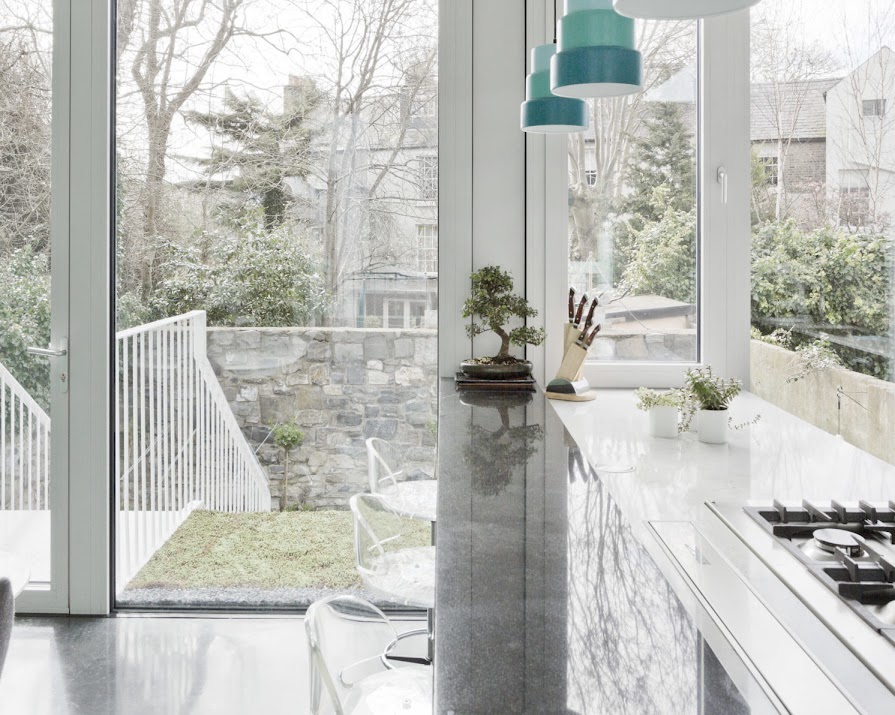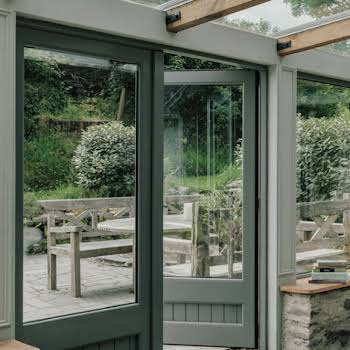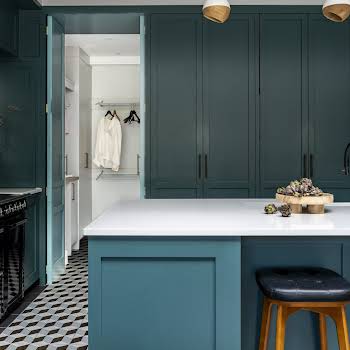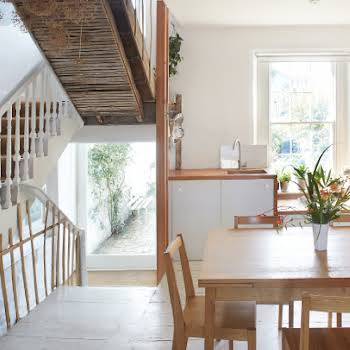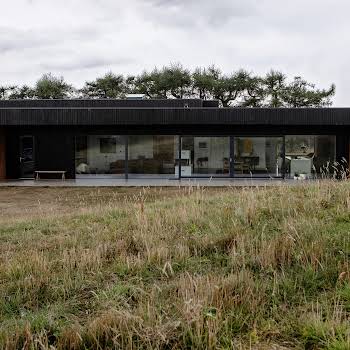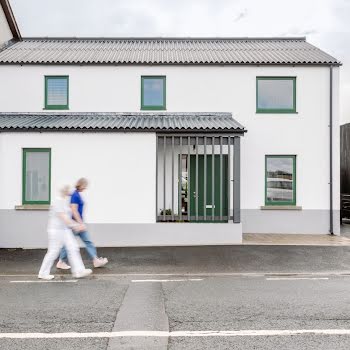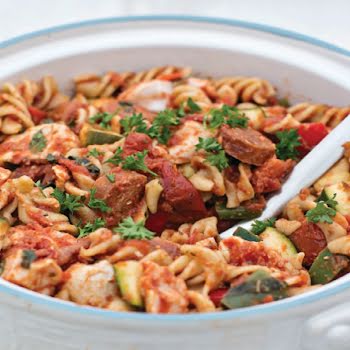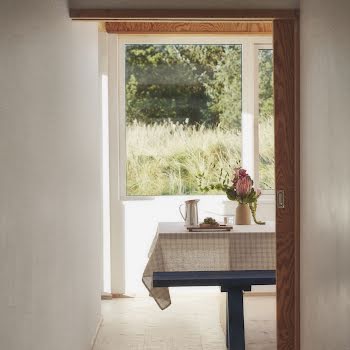By Laura Iunghuhn
26th Mar 2021
26th Mar 2021
There seem to be so many rumours about polished concrete kitchen counters going round. Is it watertight? Can it be cleaned enough that it’s sanitary as a kitchen counter? Will it crack? We decided to get an expert in and settle in once and for all.
Concrete in the kitchen. Friend or foe?
Exposed concrete has become more and more commonplace over the last few years, transcending its original use as a basic construction element to become the centrepiece of floors, staircases, sink and countertops the world over. The matte grey material has so many attractive qualities; it can be polished to a high shine, dyed to different tones, ground for terrazzo effect, and can add a subtle rough texture to a space. It’s also durable and long-lasting.
But is it a good surface for a kitchen, where water, heat and hygiene are all factors? To find out, we chatted to Dave O’Shea, owner and director of ODOS Architects, who has plenty of experience installing concrete into commercial and residential properties, as well as his own home.
 An ODOS project featuring concrete floors and countertops in the kitchen.
An ODOS project featuring concrete floors and countertops in the kitchen.
Ideally, should concrete be pre-cast or poured onsite?
“Both are equally good ways of using concrete,” he says. In a factory, there are few external conditions that will affect the outcome, and it won’t leave the factory until the client has signed off on it. However, factory production can be slow. On-site the process is much faster, but things can be uncertain. “The guys who are installing it need to be more capable,” Dave explains. “It’s down to formwork, the team who does it, and the conditions on site.”
Can existing concrete be polished?
Yes, and Dave says his team are doing it on a number of projects. “You can grind down an existing floor to produce a new finish,” he notes.
Is concrete a viable option for kitchen counters as well as floors?
Depending on the style you’re looking for, concrete floors and countertops can work beautifully. “I have a concrete counter for my own house, and it works really really well,” Dave tells me. “I’ve had it for 10 years, and it looks better now than when it first went in.”

Does concrete crack and can it be prevented?
“Yes”, Dave answers. “It’s a natural product. It moves with the temperature of the room,” so cracking can occur at points where the concrete grinds against other materials due to different rates of expansion and contraction. Once they occur, they’re almost impossible to fill them in as you can’t get a perfect colour match. To prevent this, reinforcements should be added to common cracking points such as the hob or sink area. However, Dave also thinks that minor cracks can add to the look. “The cracking adds to the quality and the character of it.” However, big cracks, those resulting from structural defects need to be repaired.
Since concrete is porous, are there risks in installing it where surfaces often get wet?
“It’s not a problem at all,” Dave says, and insists the seal applied to concrete surfaces prevents quick absorption and staining.
Are there kitchen substances or cleaning supplies to be concerned about?
You do have to be careful here, Dave warns. Industrial cleaning agents are a no-no as they will dull the surface and break down the sealed coating. Cleaning should be done with “mild, soapy cleaning agents that won’t cause any degradations”. Also be aware that acids, like those in citrus fruits, should also be avoided, as they can eat into the surface of the concrete.

What type of maintenance is recommended?
On this point, Dave touts the low-maintenance nature of the material. “There’s no need to buff it. You just keep it washed, mopping it regularly.” As for sealing, “We’ve had our floors for 10 years, and we’ve never resealed them.” He recommends using concrete-specific cleaning products with the sealer built-in. “These cleaners should be provided by the concrete installer.”
What do the installation and long-term upkeep costs look like?
Laying and finishing the floor can cost €100-€150 per square metre so it’s certainly not the cheapest. But Dave puts this into perspective. “You can spend 150 quid a square metre on a good timber floor in addition to the screed floor,” he explains. “The cost of the concrete floor includes the screed.” Finish can also impact price. “The higher polish, the higher cost per square metre.” Dave estimates about €40 a year for cleaning products.
Finally, what should we know before making a final decision?
Keep in mind how the floor will be used. Dave considers some factors: “Are there animals? Is there high traffic? For a kitchen, you may be looking for slip resistance.” So be aware, polished concrete can get slippy when wet, but otherwise, it’s ideal for any kind of kitchen surface.
Photography by Ste Murray & Doreen Kilfeather.











